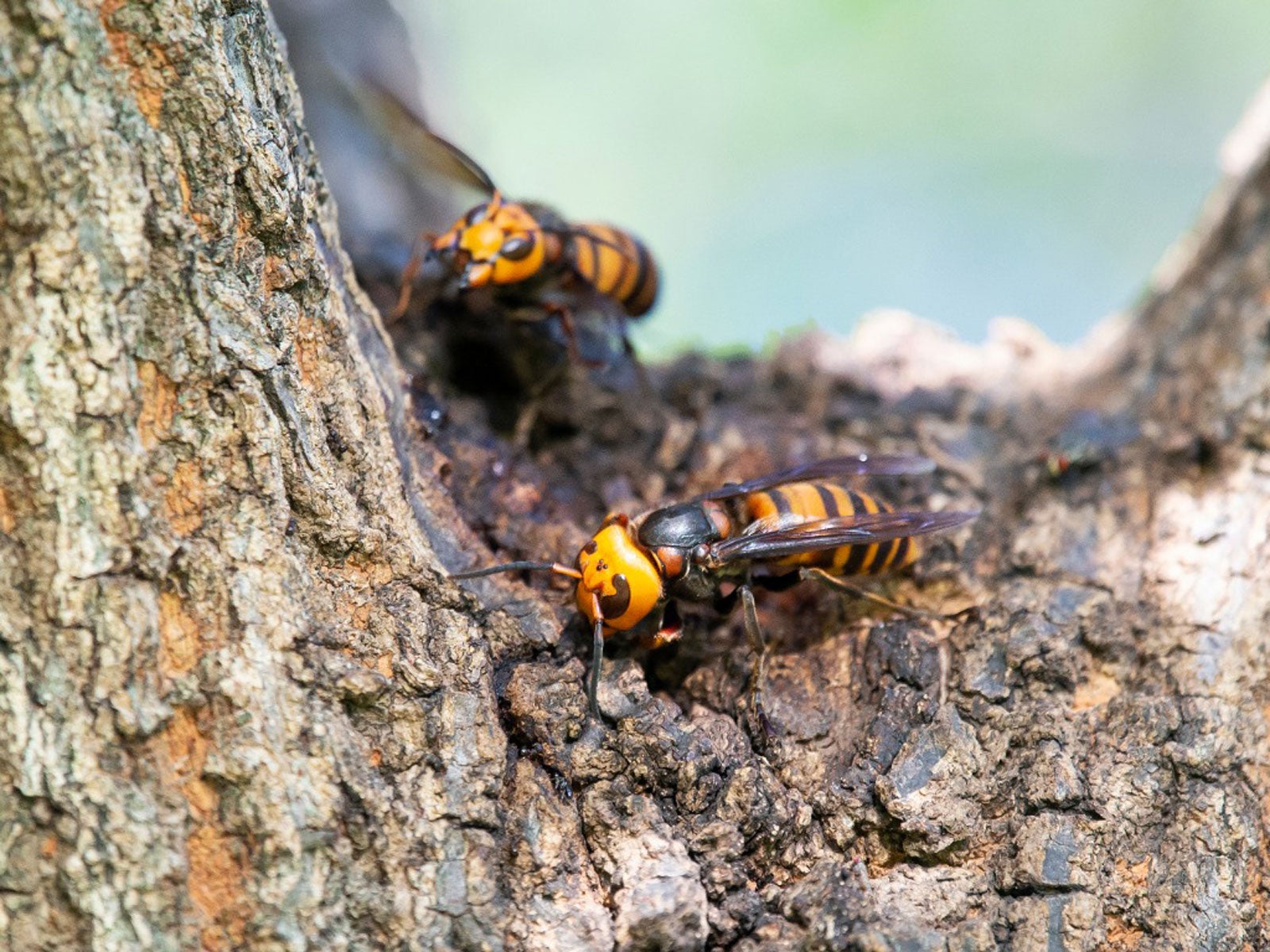Murder Hornet News: Truth About Humans, Murder Hornets, And Bees


If you check into social media regularly, or if you watch the evening news, there’s little doubt that you’ve noticed the murder hornet news that has recently captured our attention. Exactly what are murder hornets, and should we be afraid of them? Can murder hornets kill you? What about murder hornet and bees? Read on and we’ll dispel some scary rumors.
Murder Hornet Facts
What are murder hornets? First of all, there’s no such thing as murder hornets. These invasive pests are actually Asian giant hornets (Vespa mandarinia). They are the largest hornet species in the world, and they’re easy to recognize not only by their size (up to 1.8 inches, or about 4.5 cm.) but by their bright orange or yellow heads.
Asian giant hornets are definitely something you don’t want to see in your backyard, but so far, small numbers have been found (and eradicated) in Vancouver, British Columbia, and possibly northwestern Washington State. There have been no more sightings since 2019, and so far, the huge hornets haven’t been established in the United States.
What about Murder Hornets and Bees?
Like all hornets, Asian giant hornets are predators that kill insects. Asian giant hornets, however, tend to target bees, and they can wipe out a bee colony very quickly, hence their “murderous” nickname. Bees such as western honeybees, originally native to Europe, have adaptations that allow them to withstand attack by most predators, but they have no built-in defenses against invasive murder hornets.
If you think you’ve seen Asian giant hornets, let your local cooperative extension or agricultural department know immediately. Beekeepers and scientists are monitoring the situation closely. If the invaders are found, their nests will be destroyed as quickly as possible, and newly emerging queens will be targeted. Beekeepers are devising ways of trapping or diverting the insects if they spread across North America.
In spite of those concerns, the public shouldn’t be fearful about an invasion of Asian giant hornets. Many entomologists are more worried about certain types of mites, which are a serious threat to honeybees.
Also, be careful not to confuse Asian giant hornets with cicada killers, which are considered a minor pest, mostly because they create burrows in lawns. However, the large wasps are often beneficial to trees that are damaged by cicadas, and they rarely sting. People who have been stung by cicada killers compare the pain to a pinprick.
Sign up for the Gardening Know How newsletter today and receive a free copy of our e-book "How to Grow Delicious Tomatoes".
Can Murder Hornets Kill You?
If you’re stung by an Asian giant wasp, you’ll definitely feel it because of the large amount of venom. However, according to the University of Illinois Extension, they are no more dangerous than other wasps, in spite of their size. They’re not aggressive to humans unless they feel threatened or their nests are disturbed.
However, it’s essential that people with insect sting allergies take the same precautions as with other wasps, or bee stings. Beekeepers shouldn’t assume that beekeeper suits will protect them, as the long stingers can easily poke through.

A Credentialed Garden Writer, Mary H. Dyer was with Gardening Know How in the very beginning, publishing articles as early as 2007.